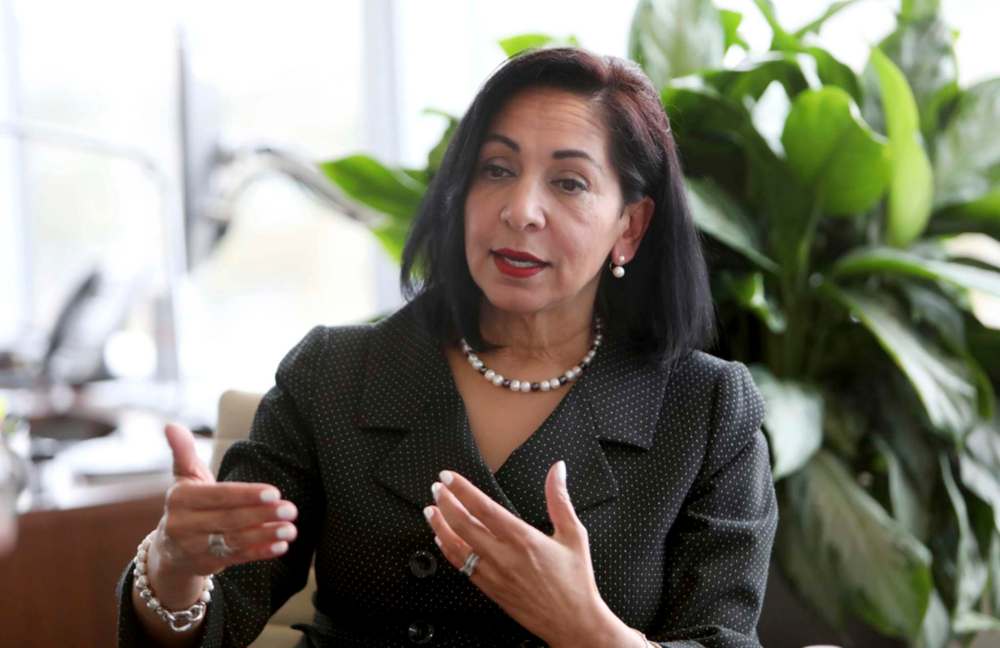First Nation chiefs behind Keeyask blockade demand visit from Hydro CEO
Advertisement
Read this article for free:
or
Already have an account? Log in here »
To continue reading, please subscribe:
Monthly Digital Subscription
$0 for the first 4 weeks*
- Enjoy unlimited reading on winnipegfreepress.com
- Read the E-Edition, our digital replica newspaper
- Access News Break, our award-winning app
- Play interactive puzzles
*No charge for 4 weeks then price increases to the regular rate of $19.00 plus GST every four weeks. Offer available to new and qualified returning subscribers only. Cancel any time.
Monthly Digital Subscription
$4.75/week*
- Enjoy unlimited reading on winnipegfreepress.com
- Read the E-Edition, our digital replica newspaper
- Access News Break, our award-winning app
- Play interactive puzzles
*Billed as $19 plus GST every four weeks. Cancel any time.
To continue reading, please subscribe:
Add Free Press access to your Brandon Sun subscription for only an additional
$1 for the first 4 weeks*
*Your next subscription payment will increase by $1.00 and you will be charged $16.99 plus GST for four weeks. After four weeks, your payment will increase to $23.99 plus GST every four weeks.
Read unlimited articles for free today:
or
Already have an account? Log in here »
Hey there, time traveller!
This article was published 21/05/2020 (2032 days ago), so information in it may no longer be current.
OTTAWA — The four northern First Nations blockading Manitoba Hydro from undertaking a massive shift change are demanding to meet with the utility’s CEO in person.
Three weeks after chiefs asked to speak with Hydro CEO Jay Grewal about the risk of COVID-19 at the Keeyask megaproject, the utility offered to hold a teleconference call.
But the chiefs leading blockades at both entrances say they’ll reject that offer. They want Grewal to visit them 750 kilometres northeast of Winnipeg.

“We’re trying to protect Manitoba as a whole,” York Factory Chief Leroy Constant told the Free Press Thursday afternoon.
“We want their president to meet with us directly. We want a nation-to-nation, leadership to leadership-style meeting to occur, just to have more transparency on their part.”
On May 1, Hydro announced its plan to allow a new batch of workers to rotate in to the site. More than 500 workers volunteered to stay for two months during the COVID-19 lockdown.
Hydro convinced provincial health authorities to exempt Keeyask construction from a northern travel ban to usher in as many as 1,200 workers, about a tenth of whom would come from outside Manitoba.
Keeyask leaders discussed the idea in weekly calls with chiefs, but the bands say they learned the details and timing the same day it was announced to Keeyask workers.
On May 7, the four chiefs wrote to Grewal asking to meet over concerns the plan would introduce COVID-19 to a region with scant medical services.
Many band members work on the site and fear an outbreak similar to those seen in northern Alberta and Saskatchewan.
Grewal wrote back, asking them to take it up with local staff and stop speaking with media about it.
The blockade started May 15, four days before the shift change was set to start.
Constant suggested Grewal could visit the blockades without contracting or spreading COVID-19, given that Hydro said its protocols allow for safe transportation.
Hydro confirmed offering the four chiefs a teleconference with Grewal “for her to hear first-hand their perspectives and concerns regarding the current Keeyask pandemic plans and the rotation of staff,” and said one chief had responded, asking for an in-person meeting.
On Wednesday, RCMP formally presented a Monday court injunction, authorizing Mounties to clear any blockades within 10 days.
RCMP presented the injunction to Tataskweyak Chief Doreen Spence, who ripped it up. She said Hydro is violating its promise to be a partner with the local First Nations.
“We’re not going to back down,” she said. “Is this how you treat a partner?”
The RCMP say they plan to intervene only if safety is at risk.
Asked if the blockades were justified Thursday, Prime Minister Justin Trudeau instead said governments and Indigenous communities need to share the goal of keeping people safe.
“Every community needs to make… make sure they’re taking decisions to protect their members, but I think there are many ways of going about it,” he said.
Premier Brian Pallister said he trusted health authorities.
“We need to follow the rule of law and we need to make sure that we respect it,” he told reporters.
dylan.robertson@freepress.mb.ca
History
Updated on Thursday, May 21, 2020 8:42 PM CDT: Fixes typo.


